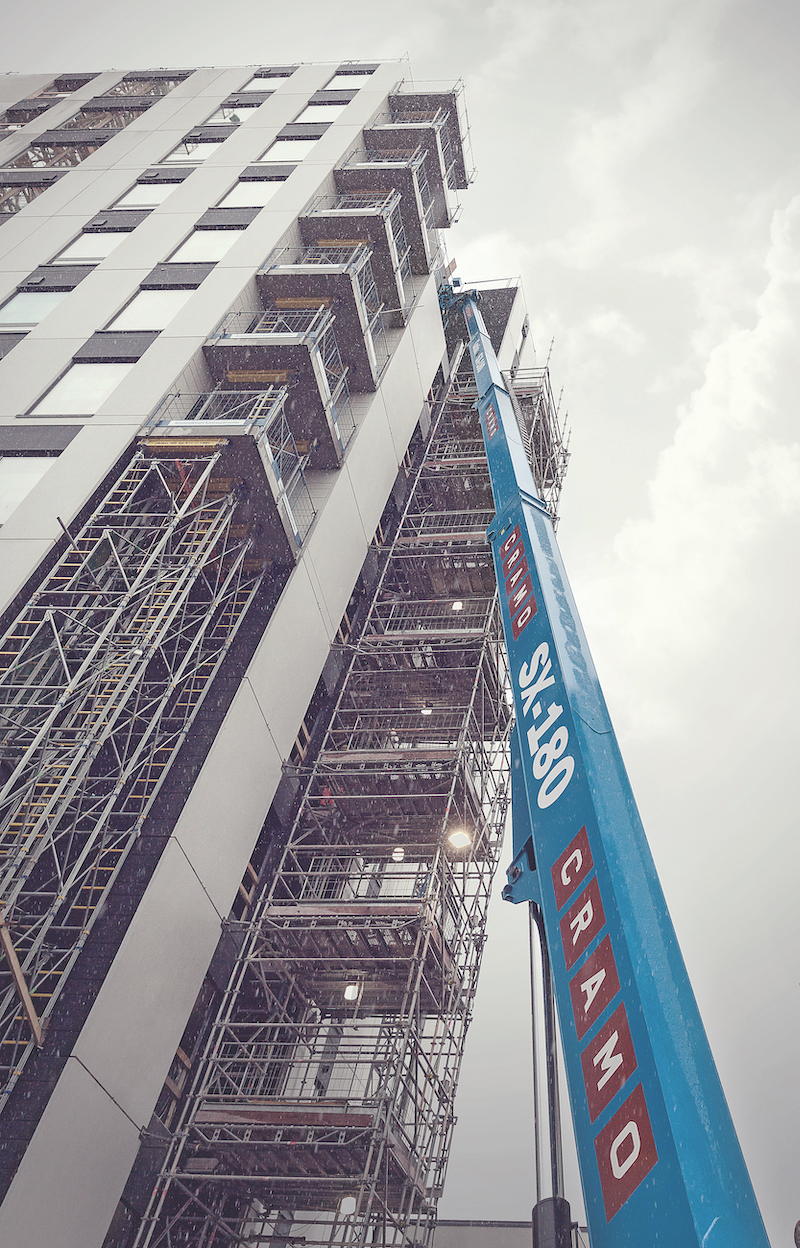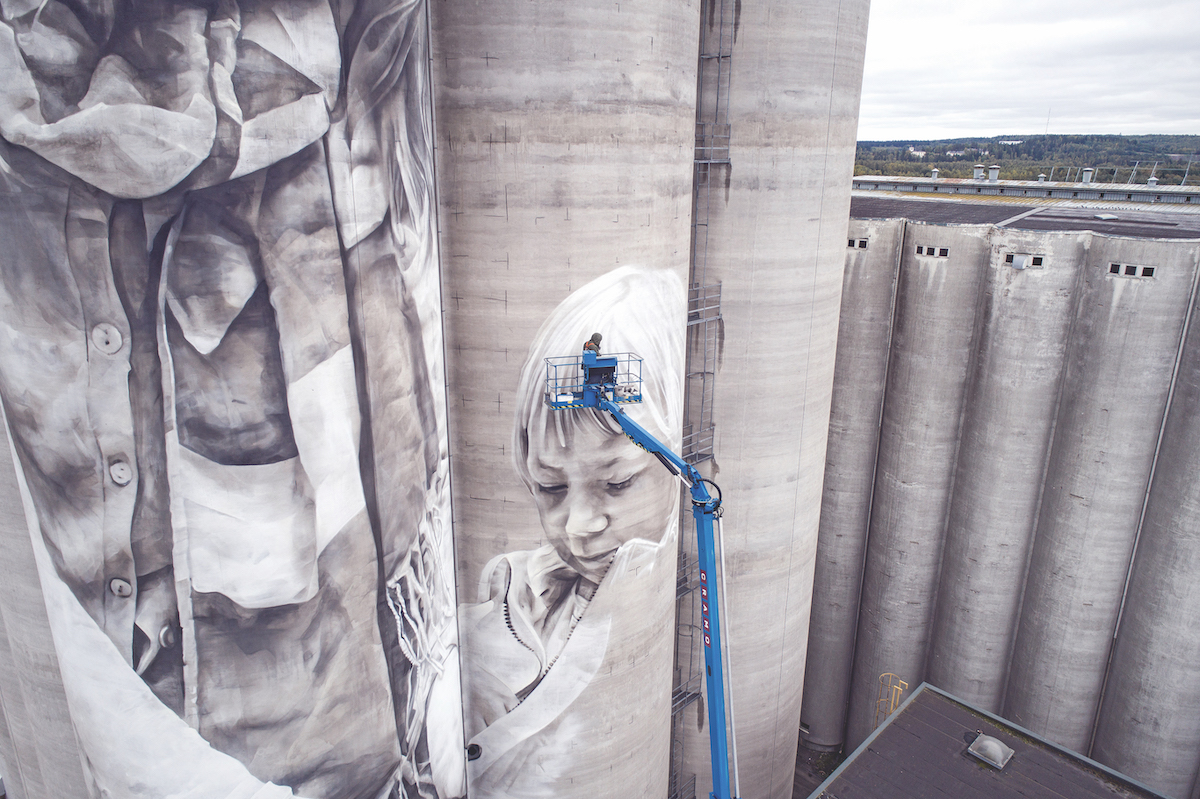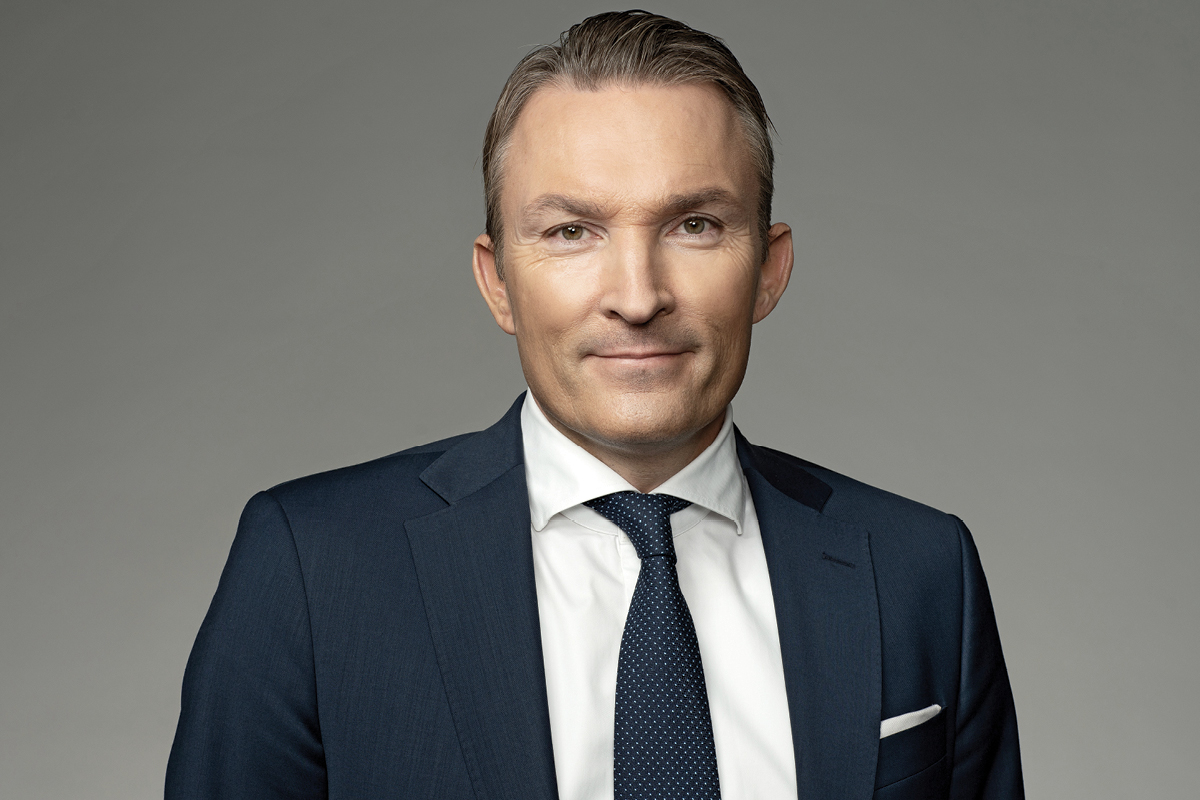The last time The CEO Magazine sat down with Leif Gustafsson, he’d been the CEO of Cramo for just over a year. Providing equipment and modular space was a new industry for him, as was spearheading a publicly listed company and the sharing economy.
Fast forward two years and Leif has proven that not only is he a quick learner, he also plans effectively and moves fast.
After initiating a complete review of Cramo’s strategy, Leif has set in place a vision for the company to become a key driver of the sharing economy and make sustainability a core factor, and a management decision was implemented to unite Cramo’s approach to sustainability and focus on clearly defined targets.
Divestments and acquisitions have simultaneously refined and broadened Cramo’s portfolio, while long-term agreements have been locked in to secure partnerships. Meanwhile, digitalisation continues to have an enormous impact on the company, with ongoing developments improving business immeasurably for customers.

Leif’s efforts were rewarded in May last year when the company was named joint winner of the 2018 European Rental Awards’ Sustainability Committee Award. The accolade acknowledged Cramo’s leadership in the field, being described as “at the forefront of developing a genuinely sustainable approach to rental and deserving of wider recognition”.
From its head office in Finland, Cramo offers machinery and equipment rental to more than 150,000 customers in the private and public sectors of the construction and manufacturing industries.
Employing about 2,600 staff members, the company offers more than 230,000 pieces of equipment to 14 countries in the Nordic region and central and eastern Europe, with 300 depots catering to local demand.
Via its brand Cramo Adapteo, the company also provides modular spaces for multiple and varied organisations, including schools, offices, accommodation, day care centres, and for events and exhibitions, throughout Finland, Sweden, Norway, Denmark, Germany and Lithuania.
These flexible, cutting-edge modular units can be customised and built to technical and regulatory requirements, meeting the standards of permanent structures.
Cramo’s sharing ethos dates back more than 60 years when construction machinery was needed for postwar reconstruction. Today, demand for rental services is emerging from demographic changes, urbanisation, resource scarcity, sustainable development, digitalisation and an increased awareness in the sharing economy of equipment, advanced technology and expertise.

A construction engineer, Leif has enjoyed nearly two decades leading B2B services. Hailing from Sweden, he is no stranger to the sustainability industry, having been CEO of Stena Recycling International for four years before joining Cramo in early 2016.
He has high ambitions for Cramo and wasted no time putting together a comprehensive sustainability framework. “Renting is a sustainable act,” explains Leif.
“Not only does Cramo provide its customers with the equipment they need but it also provides them with its expertise in the field. We offer customers effective, safe guidance and training on how to use our equipment. So, we’re doing our part for work safety as well as the environment.”
“We’re doing our part for work safety as well as the environment.”
“We have reached sustainability milestones, but still have work to do,” he concedes, adding, “we have a lot of interesting ongoing projects. At the moment, we are planning for a construction project that should be 100% fossil-fuel free. So, we’re taking some big steps, and the good things we are doing sustainability-wise are capturing the attention of markets, analysts and other stakeholders.”
When Leif joined the company, he embraced Cramo’s three clear brand promises: to be helpful, to be on time with deliveries, and to replace or fix equipment within four hours. He admits it is the last one that particularly impressed. “Replacing equipment within four hours if it fails, is absolutely essential,” he stresses.
“It’s an important promise to our customers and one we know they appreciate. We will always meet that commitment to our customers, no matter their location. Of course, along with the promise, we’ve improved our technology and that allows us to be more agile and precise internally in response to our machines if things go wrong.”
Leif says much of the past two years were about analysing all the company’s markets to decide its future footprint. He introduced a new strategy for 2017–20 called Shape and Share, which focuses on digitalisation and the sharing economy.
It also catapulted the company to a pathway to implement more divestments and acquisitions. “That has, more or less, been done,” he says.
“We completed some divestments in certain markets as well as some acquisitions, large and small. Our acquisitions are part of our growth strategy and fairly planned, meaning that we frequently work with different advisers, screening different markets. But of course, while we try to be proactive, the number of acquisitions depends on finding the right ones.”
In June 2017, the company acquired Just Pavillon, to strengthen its modular space business in Denmark. Cramo took on all assets, including Just Pavillon’s modular space rental fleet, customer contracts and its product range of 360 modular units, used mainly in the school and office segments.
Just a month later, it divested its Danish equipment rental operations to Loxam, a market leader in the industry, to enable more investment in Denmark’s modular space market, and in August the company divested its equipment rental operations in Latvia and Kaliningrad to AS Storent Investments, again to enable the company to focus on more long-term and profitable investments.

These long-term investments paved the way for two major acquisitions in 2018. In January, Cramo secured KBS Infra, a leading German construction site logistics company with a fleet of 6,000 containers and extensive construction site and electricity equipment.
“Getting them on board was important. KBS is a company that not only has an edge in site logistics but has also expanded our knowledge across the borders into Germany,” Leif explains.
In October, the company strengthened its position in the Nordic modular space market by completing its acquisition of the Nordic Modular Group, an established player in the industry. “This acquisition was the biggest in Cramo’s history and brings a lot of interesting values for our modular space business,” Leif says.
“It has broadened our potential to offer different temporary solutions in the premium sector. Of course, the number one advantage is that, once again, we’ve increased our knowledge base. But just as important is that we’ve broadened our portfolio when it comes to offering different modular space solutions.”
“Apart from this, another big add-on is having the opportunity to procure long-term sales and lease agreements, close to 10 years, which we haven’t previously had in our sector. Long-term leases provide us with different types of customers than those we have short-term relationships with.”
“It’s been vitally important for us to have identified this key area where we can increase our services and site logistics, bringing more added value to our customers. We’ve also provided more high-quality services. And we will continue seeking more interesting acquisitions in different countries.”
Apart from growth and optimising its expertise, another important factor of Cramo’s Shape and Share strategy is digitalisation. The technology needed to track multiple sources of data from its machines is being introduced, an advance that provides important feedback, not just for the company but also for its customers.
Two areas in which the company has grown rapidly are BIM technology – the use of infrared detection devices – and narrowband radio technology. “We have definitely improved in different areas,” Leif says, adding, “Cramo is not done yet. We have many ongoing projects in the area.”
“Digitalisation is so important to help us become even better and more advances are just around the corner. One example is working on getting more information from our machines, to enable us to make the right decisions.”
“Working internally to be more efficient and finding good customer solutions is vital for us. We can then identify their needs to help with their existing concerns so they can improve their business,” Leif says.

“Another area where we have grown quite quickly and established ourselves is BIM technology. In Norway, we’re working with a big construction company, using 100% BIM technology. It is something we will see grow even faster in the construction industry. We’re doing quite a lot to change traditional models to be more agile and direct in using technology.”
Cramo’s eCommerce solution is also an important contribution to its digital platform, with the service allowing customers to browse, compare orders and even return equipment online.
“We’ve made huge improvements updating our services on our websites,” Leif says. “Our ambition is for all of our customers to be able to access our services online.”
Meanwhile, Cramo is using its Shape and Share strategy to strengthen employee relationships and help staff perform to their potential. Leif says encouraging employees to improve their personal development is crucial to creating their own future.
“We believe strongly that every working culture needs a good story for employees to tag on to and feel proud of.”
“It’s one of the cornerstones of our Shape and Share strategy,” he says. “We believe strongly that every working culture needs a good story for employees to tag on to and feel proud of, and we’ve launched our own internal story to boost people development called ‘We are Shapers’.”
Leif says the ‘We are Shapers’ culture has created an open atmosphere where ideas are welcome and everyone feels equally important. He says Cramo employees are now motivated to not only expand their own self-development but also contribute more to their company.
“People are calling themselves ‘Shapers’ and that employee branding perspective is a very good thing. It is something we want all Cramo employees to feel – like they are all helping to share and sharing to help.”



